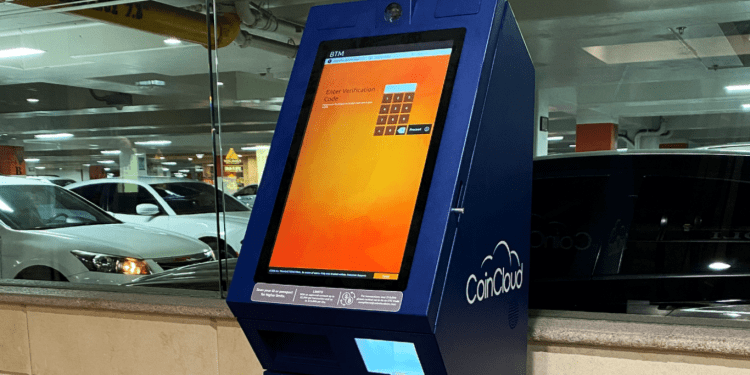One of the biggest cryptocurrency ATM providers, Coin Cloud, has declared bankruptcy in the US and claims to run more than 5,000 cryptocurrency ATMs. The biggest creditor of the business is Genesis Global Trading, whose parent company also just declared bankruptcy in the United States.
- Following closely behind its lender, Genesis Global, bitcoin ATM provider Coin Cloud filed for Chapter 11 bankruptcy in Nevada on Tuesday.
- With the closure of each peculiar tiny kiosk, the number of access points for the crypto-curious may decrease.
Coin Cloud Files for Bankruptcy
On Tuesday, Coin Cloud, a company that operates ATMs for digital assets, filed for Chapter 11 bankruptcy voluntarily. Coin Cloud listed between 5,000 and 10,000 anticipated creditors in its case with the District of Nevada office of the U.S. Bankruptcy Court. Moreover, according to the corporation, its total assets lie between $50 million and $100 million, while its total liabilities fall between $100 million and $500 million.
The largest unsecured creditor of Coin Cloud is the cryptocurrency lender Genesis Global Trading Inc., with a $116,353,435 total claim. Genesis Global Trading’s unsecured claim is for $108,568,655 after deducting the value of the collateral, according to the filing.
The Southern District of New York received a Chapter 11 bankruptcy filing from Genesis Global Holdco LLC on January 19, along with those of two of its lending company subsidiaries, including Genesis Global Capital. Genesis Global Trading is not listed in the filing, though. Genesis filed for bankruptcy after the Securities and Exchange Commission (SEC) of the United States filed a complaint against it, saying that the crypto lender had offered and sold unregistered securities to ordinary investors.
Coin Cloud Claims
According to Coin Cloud’s website, it runs more than 5,000 two-way crypto ATMs across the United States and Brazil. Over 40 cryptocurrencies, including bitcoin, cash, litecoin, and ether, can be bought and sold using the devices. They also provide a variety of decentralized finance (defi) coins, gaming tokens, and stablecoins.
With 4,826 machines, Coin Cloud is the second-largest crypto ATM operator according to the cryptocurrency ATM tracking website Coin ATM Radar, behind only Bitcoin Depot with 6,634 devices. The tracking website reports that there are already 38,340 cryptocurrency ATMs spread across 81 nations. Many cryptocurrency businesses, including FTX, Core Scientific, Celsius Network, Voyager Digital, Three Arrows Capital, and Blockfi, together with Genesis Global, declared bankruptcy last year.
Kiosk Transaction Revenue
The third-largest operator, Bitcoin Depot, which would receive a financial infusion from the SPAC transaction and list on a U.S. stock exchange, is prepared to do so. Financial filings show that the company’s kiosk transaction revenue, which accounts for most of its sales, increased 120% from the previous year to $549 million in 2021. This increase was caused mainly by the increased number of kiosks in operation. As a result of expansion, its cost of sales increased by 130% at the same time. It had around $3.5 million in working capital as of September 30, 2022.
Crypto Winter for ATMs
But the crypto winter has also arrived for ATM operators, having previously had an impact on lending platforms, exchanges, and miners. While they commanded excessive fees, often as much as 20% each transaction, and enjoyed fat profit margins when business was booming, their rapid expansion cost them dearly. In the United States, the number of machines more than tripled between September 2020 and September 2022. And now, amid the market collapse, the expenses of funding growth are catching up with the overleveraged. A few financial regulators have also shut them down from countries other than the U.S.
Conclusion
Operators of bitcoin ATMs do not hold customer assets in the trust. As a result, the customer can fully manage their bitcoin. As with other cryptocurrency networks, it cannot imprison its users’ bitcoin in the device. Even though Coin Cloud’s future may be uncertain, it continued its debt restructuring efforts and remained dedicated to becoming a significant participant in the Bitcoin and other digital currency industries.














